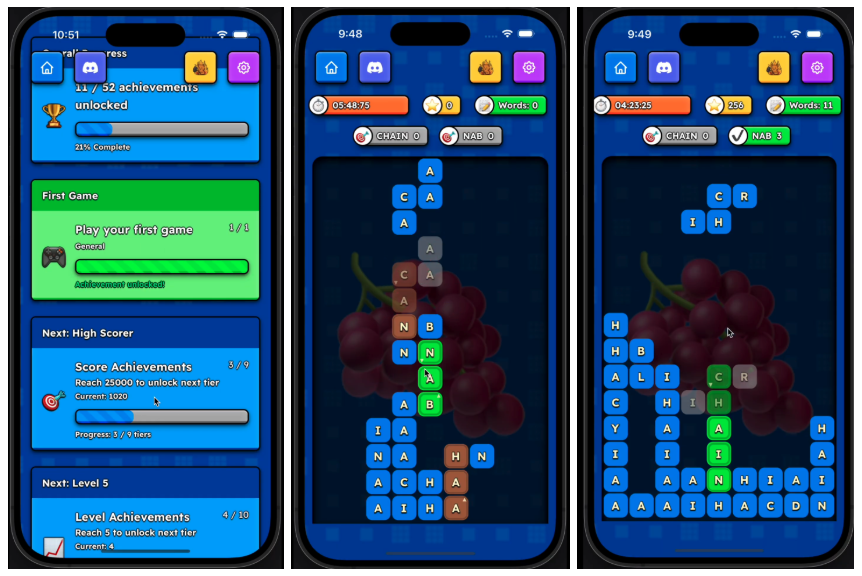From Enterprise to Entertainment: KATforge Studios Brings Family Fun to Gaming Industry
Kevin Marcus, a veteran of the Seattle startup scene, has pivoted from enterprise software to video games with the launch of KATforge Studios, a family-run indie game development company. After spending decades building successful tech companies like InfoSpace, Intelius, and most recently Versium (which he departed in April after 13 years), Marcus has embarked on a new venture that marries his passion for innovation with his desire for enjoyment in his work. “I’m one of those people that really struggles to do things I don’t like,” Marcus told GeekWire in a recent interview. “So every company has always been something that I enjoy doing or find fun in working on. Doing this is a different type of fun.”
KATforge Studios, whose name cleverly incorporates the initials of its founding family members—Kevin, Annemarie (his wife), and Trevor (his son)—represents more than just a professional transition for Marcus. It’s a true family business where all three contribute to the creative and technical development of their games. Their debut title, “Lextris,” demonstrates their vision by blending familiar gaming concepts into something fresh. The game combines elements of “Tetris” and “Scrabble,” challenging players to form words from letter blocks that fall from the top of the screen. Players score points based on word length and complexity, creating a fast-paced word puzzle experience that feels both familiar and novel.
Unlike many competitors in the word game market, Marcus isn’t simply trying to create another “Wordle” clone in what he describes as an increasingly saturated space. Instead, KATforge is focused on leveraging technology, particularly artificial intelligence, to rapidly prototype and test game concepts that can foster community engagement. Marcus believes that popular puzzle offerings from non-traditional gaming outlets like The New York Times are missing a crucial element—community connection. “The goal with KATforge is to bring people together to solve things that they couldn’t necessarily do on their own,” Marcus explained. By targeting existing social groups like book clubs or retirement communities, Marcus sees an opportunity to extend the reach of his games through features like team competition, which may be coming to “Lextris” in future updates.
The studio’s approach to game development exemplifies how modern tools can accelerate the creative process. KATforge used Anthropic’s Claude AI model to build the first prototype of “Lextris,” generating 15,000 lines of what Marcus candidly describes as “terrible” code that would have been impossible to maintain long-term. However, this AI-assisted prototype served its purpose perfectly—allowing the team to quickly test concepts and gather user feedback before investing in a proper, human-coded implementation. “The ability to rapidly prototype it and put it out and see what happens, that is something we could not have done before, because it would have taken just way too long,” Marcus observed. This process of AI-assisted prototyping followed by traditional development is now central to their workflow for future titles.
Marcus’s perspective on AI extends beyond just game development methodology—he sees the broader technological shift as directly relevant to the future market for games like those KATforge is creating. As AI and automation increasingly handle routine work tasks, Marcus predicts people will have more leisure time to fill. “If robots and agents are doing more of the work, people are going to have more free time,” he noted. While some might use that time for physical activities, others will seek mental stimulation through puzzle games and brain exercises. This vision of AI creating not just new development tools but also expanding the audience for entertainment products reflects Marcus’s forward-thinking approach to business opportunities.
Currently, KATforge Studios operates as a self-funded venture, with “Lextris” available to play for free without advertisements or in-game purchases. This approach allows the studio to focus on building an audience and refining their understanding of player preferences before implementing monetization strategies. Looking ahead, the family team is already working on their second title, “Gear Goblins,” a role-playing game that will expand their portfolio beyond word puzzles. By combining Kevin’s startup experience, his family’s creative input, and cutting-edge technology, KATforge Studios represents a refreshing approach to indie game development—one where creating enjoyable experiences and fostering community connections take precedence over immediate profit considerations. In a gaming landscape often dominated by major studios and profit-driven decisions, this family-first approach to game creation stands out as both innovative and heartening.


